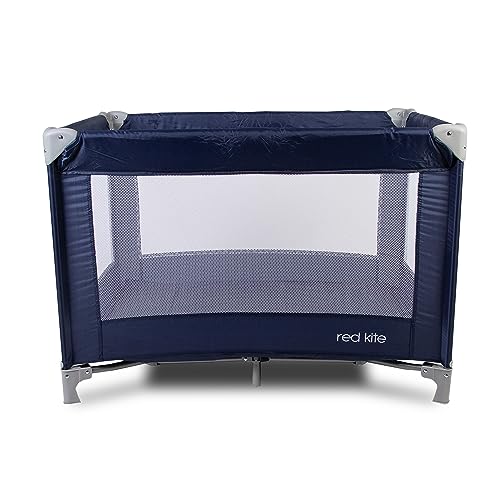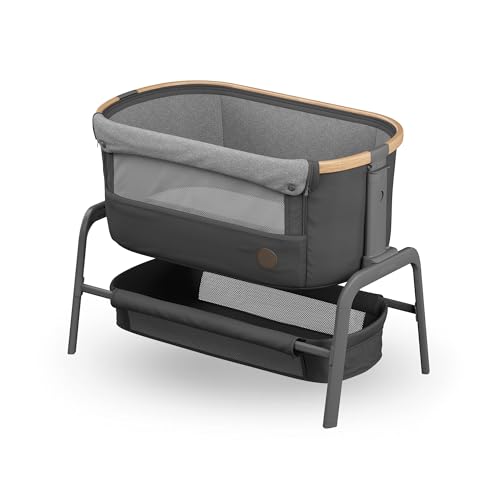The 10 Most Scariest Things About Cot Sales
페이지 정보

본문
 Cot Sales and Ambulance Services
Cot Sales and Ambulance Servicessale cot sales are increasing due to higher birth rates and increased awareness about safety for babies. Numerous companies are also introducing new designs of cots that can be turned into day beds.
A consistent and robust method for assigning COT designations is crucial to ensure accuracy in government pricing computations. A documented SOP and an effective auditing process are crucial.
Increase in demand for ambulances
The market for ambulance services in the world is growing rapidly because of the increasing frequency of traumatic accidents and chronic health issues. These conditions are often accompanied by medical emergencies, which need immediate and prompt intervention to save lives. This increased demand highlights the importance for the public's health to have efficient emergency response systems, and easily accessible healthcare facilities.
Ambulances transport patients to hospitals and other healthcare facilities, and also provide out of hospital care while in transit. The demand for these vehicles is driven by the increasing number of road accidents, a rising number of people who are elderly and favorable reimbursement policies. Additionally the demand for air ambulances is increasing due to an increasing demand for fast and reliable medical transportation over long distances.
The global ambulance market can be divided into three categories: hospital-based services, independent service providers, and government-run services. Hospital-based services are mostly run by healthcare facilities or by private companies who operate ambulances on their own. The independent segment, which includes air ambulances that are privately owned and operated and expected to grow quickly over the forecast time. The government-operated segment, on the contrary, is comprised of ambulances operated by state, municipal, or military units.
Based on the type of fuel used the global ambulance services market is categorized into diesel, gasoline, and electric. The diesel segment is expected to bring in the highest revenue share during the forecast time. Diesel-powered ambulances are highly sought-after by fleet owners for their superior performance and reliability. Moreover, the fuel economy of diesel engines is increasing thanks to technological advances. However, growth in the diesel segment is hampered by stringent emission rules.
The rise of new medical technologies is increasing the demand for ambulances. This includes telemedicine capabilities, Affordable Cots which enable ambulances to communicate with doctors in real time and receive instructions for treatment. These technologies are helping to improve patient outcomes and reduce emergency department (ED) admissions.
North America dominates the global ambulance services market followed by Europe and Asia Pacific. The North American market is fueled by high demand for high-quality health services, a dependable healthcare infrastructure, and favorable reimbursement policies. The market's potential also boosted by strategic efforts of market entities and the increasing geriatric population.
The healthcare sector is spending more money. sector
The healthcare sector is responsible for a large portion of the nation's economic activity. Additionally, it aids in the development of human capital as well as improving labor productivity. Increasing expenditure in this sector is therefore important for economic performance. However, it's not always easy to determine how health care spending impacts a country's economy. Numerous factors affect growth and healthcare spending. These variables can differ between regions and industries.
In the US the primary sources of funding for healthcare are private households, private businesses and the government. Private household and business expenses are financed by health insurance premiums paid to private individuals and out-of pocket spending. Government program spending is also funded (either through dedicated taxes or general revenues). Government program spending is a key factor that influences health spending trends. During the COVID-19 epidemic the government's spending on long-term, non-hospital-care services soared significantly. More than a third (33 percent) of all health expenses in the United States are accounted for by government programs.
Gross Domestic Product (GDP) is commonly used to quantify health expenses. GDP is an indicator of a nation's total output. In the case of health care, it includes the production of products and services. An expanding economy is linked with a higher GDP and more jobs. This is why it's important to know the impact of healthcare expenses on GDP and other economic indicators.
It is important to think about the impact of healthcare expenditure on economic performance when designing public policies and evaluating any new healthcare initiatives. Numerous studies have shown that higher investments in healthcare increase the efficiency of human resources and boost economic performance (1,2). However, the effects are complex and can vary according to the industry and population groups affected by the expenditure.
It is essential to have a documented COT assignment process to ensure that prices paid by the government are accurate and consistent. Lack of consistency can lead inaccurate data, which may result in unfavorable Medicaid Rebates, NFAMP, and 340B/PHS ceiling prices. Inaccurate COT designations can also result in chargebacks, contract restrictions and other financial penalties. To avoid these pitfalls it is recommended that a COT assigning method be developed based on the manufacturer's SOPs and COT reference library.
The demand for convertible cribs is increasing.
As baby products become more sophisticated, parents are now willing to invest heavily in their children. This has resulted in an increase in the demand for cribs that can be converted into a toddler bed or a daybed. These conversion kits are a great way to extend the life of a crib while saving money. They also help parents avoid having to scramble at the last minute to find a full-size bed for their child. The demand for cribs like these is expected to increase during the forecast time.
The global market for cribs and cots has been growing quickly due to the growing birth rates and the standards of living around the world. The market includes a range of essential baby care items like strollers cribs, monitors, and cots. The demand for multi-functional, high-quality, and safe baby furniture is driven by the rise of nuclear families and working parents. Top brands such as DaVinci Baby have multifunctional cribs that can be transformed into toddler beds or a larger bed. This gives parents the most value from their money.
They are typically constructed from durable wood or metal, which makes them an excellent choice for babies and small children. These cribs are easy to clean and are is a great option for families with busy schedules. Many are designed with safety features, such as side guard rails built in and the mattress latch. Some even have adjustable mattress heights to accommodate different age groups.
Baby cribs and cots are sold in specialist stores and online distribution channels. They are also available in a wide range of designs and styles, from contemporary to traditional. Some models even include features such as sensorSafe technology and airbags that increase security and safety. The use of eco-friendly materials in the production process has also grown.
As babies spend on average two and quarter years in their cots they are a crucial part of their development. Manufacturers have responded by creating new models that combine design, comfort and functionality. For instance, Cradlewise's smart crib employs artificial intelligence to understand a baby's sleep patterns and adjust to them. It also features the bassinet mode for infants that offers comfort and security.
The demand for multifunctional cots is on the rise
The market for baby cots worldwide is expected to grow quickly, driven by the changing consumer preferences and technological advances. Regional dynamics also influence the market. For example, Asian countries are a major factor in the growth of the market, thanks to rapid urbanization growth and rising disposable incomes. Parents in these countries are looking for multi-functional products that are space-saving and offer convenience. Companies that adapt their product offerings to these preferences are poised to thrive in the market.
Manufacturers are introducing smart technology to baby cots to tots in order to increase functionality and user-friendliness. For instance, a new generation of smart nursery cots has IoT capabilities that let parents monitor their infants from their mobile devices. Such innovations help to make cots for babies more flexible and attractive, which will increase their popularity.
A growing trend towards urban living has also helped boost the demand for multi-functional cots. Parents in small homes are looking for furniture that maximizes space, so cots that can be converted into playpens or even adult beds are popular with many buyers. Furthermore the safety aspect is an important concern for many families and has led to an increase in demand for cots that are in compliance with strict regulations.
Consumers are also seeking multifunctional cots that offer attractive designs. Buyers, particularly millennial parents, are increasingly attracted to brands that emphasize quality and design. This generation is more tech savvy and research-oriented which has increased the need for baby furniture that combines function with aesthetics.
The changing economic environment is a different factor that affects cot sales. Families prioritize essentials in times of tight budgets. This has prompted some manufacturers to launch cost-effective options, allowing them to compete with low-cost rivals in the marketplace. In addition, the rise of e-commerce has altered purchasing behavior, allowing consumers to choose from a wider range of baby items at affordable prices.
 In the long term, the multifunctional baby market for cots and tots will continue expand, aided by the emergence of trends and a rising emphasis on family-centered values. However, challenges like fluctuating raw materials costs and a fierce competition could hinder the market's growth. It is crucial that manufacturers constantly change and adapt to the market.
In the long term, the multifunctional baby market for cots and tots will continue expand, aided by the emergence of trends and a rising emphasis on family-centered values. However, challenges like fluctuating raw materials costs and a fierce competition could hinder the market's growth. It is crucial that manufacturers constantly change and adapt to the market.- 이전글Why You Should Focus On Improving Spare Car Key Cut 25.01.06
- 다음글What's The Job Market For Best Cot Newborn Professionals? 25.01.06
댓글목록
등록된 댓글이 없습니다.